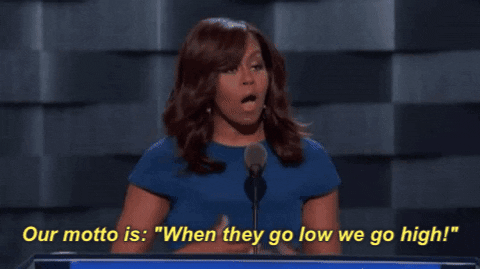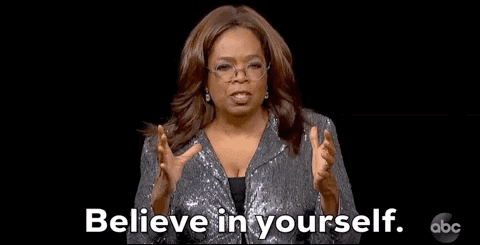What do you do when you hear “tell me about a time when…”
Do you jump for joy or want to hide under a desk?

Whatever your reaction, these questions are not only a reality but very common in interviews. In this article, learn more about 4 common behavioral interview questions and how to answer them. Because if we’re being real, you have to know the game to win.
Why hiring managers ask behavioral questions

Recruiters and hiring managers do not ask behavioral questions to put candidates under pressure. According to Indeed, employers use behavioral interviews as a structured format to understand how your experience applied to real situations, value add, and how you might perform in complex situations. In other words, show ‘em what you got!
This is the time to take that resume detail to the next level. The most common themes for these questions are around managing projects, managing conflict, and interacting with others. Additionally, as candidates are unique, behavioral interviews can promote an equitable hiring process. Reducing bias is definitely what’s up!
Now, let’s get into the questions...
Question # 1: Tell me about a time when you had to manage conflict (with a team, on a project, as a supervisor, etc.)
This question is often asked to learn how you navigate difficult personalities or obstacles. Employers want to hear how you were able to move forward productively. This will not always mean that the conflict itself was resolved. A successful outcome, however, is to maintain quality workflow and relationships.
Your response should give context to the situation but keep it positive. Even if the situation was low, you go high. Give the necessary details but keep it results-focused.

Question #2 Tell me about a time when you disagreed with a decision that directly impacted your work. How did you navigate the situation?
This question is asked to gauge how you handle disagreements. Like question one, your goal is to demonstrate how you can manage differences of opinion without sacrificing work quality. In this response, you can share why you disagreed. Keep in mind, though, the employer is looking to understand the impact of the disagreement on your work.
Question # 3: Tell me about a mistake that you’ve made. How did you handle it?
Nobody’s perfect. #Truth
While it is true nobody is perfect, it’s important to recognize whenever you make mistakes. Employers need to hear that you can acknowledge a mistake and that you are proactive in trying to correct it. Beyond that, it is critical to share what you learned. Mistakes happen but repeating the same one should not.
Question #4: Describe a project that you managed. How did you keep everything moving on time?
This question is all about managing projects and time. No matter what role you are interviewing for, hiring managers are looking for employees who can deliver timely results. When crafting your response, focus on examples that clearly describe your process as well as the result of that process.
Tips to prepare for any behavioral interview questions
The key to acing any behavioral interview question is to tell a compelling story. One of the most common techniques that career coaches recommend is the STAR format. STAR stands for:
S- Situation
T- Task
A- Action
R- Result
To effectively integrate STAR, focus on presenting specifics while being concise. We know, the nerves! But think of it this way, you’ve already got the interviewer’s attention. Now is the time to make the hiring team visualize you in the role as a contributor and teammate that brings value as only you can. One mistake when telling stories is focusing on the what and not the how (method) or result (impact). The STAR method can help you prove how you solve problems and offer hiring managers a clear picture of your experience.
Remember, behavioral interviews are not intended to play with your confidence. According to the Association for Talent Development, “the theory behind behavioral interviewing is that the best predictor of your behavior and performance in the future is your behavior and performance in the past.”

With preparation and practice, you can master these behavioral interview questions and many more.
Mentally practicing and envisioning a successful interview conversation is key for your confidence.
You got this!

feature photo credit: Jopwell

